Dearest Sender of the Bulldozers by Christopher Mlalazi
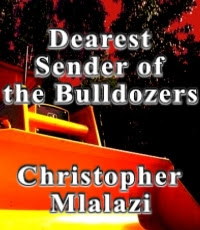 They are walking past. Some cast open glances of disgust, some tinged with apprehension, in my direction. For I know they can never understand how an old woman and an infant can live on a street pavement. Who can blame them? Of course the memory of my husband stands over us, protecting us from both their stares, and the elements.
They are walking past. Some cast open glances of disgust, some tinged with apprehension, in my direction. For I know they can never understand how an old woman and an infant can live on a street pavement. Who can blame them? Of course the memory of my husband stands over us, protecting us from both their stares, and the elements.
Dearest comrade, I got both this paper I am writing on, and the pen, from the Chief of the dump outside the city, where I started this letter a while ago, sitting in a cave looking over my ill husband.
The first day we stumbled on that cave, let me tell you as you burp from exotic salads, it was a clear morning, the sun shining so brightly, as though for us, and the birds singing sweetly in the trees. My husband and I stood at its mouth, him thanking his ancestral spirits, and I God, for being so kind to us. Finished with the praise of our divine benefactors, we had stood for a while in front of the cave mouth, just looking at it, relishing the moment, because, finally, we had found a home. Actually, it was my husband who discovered the cave mouth - he had stopped to relieve himself at the side of the mountain, then he had broken a branch off a bush to use it on himself, and behind the bush was the open door of our new home!
As we had stood watching the cave mouth, a wild dog had shot out of it towards us - I had screamed, and it had darted between our legs and disappeared into the forest. My husband, he was strong then, said to me after we had regained our composure – these are his exact words – 'If an animal can find sanctuary in there, so can we,' and, brave man, he had disappeared into it. I had stood waiting for him outside, terrified to follow him in - what if there were more wild animals inside there? I waited and waited, but he did not come out. Finally, scared of the open, I had followed him in, my baby strapped to my back.
It was semi dark inside, and the smell of animal dung, and something rotting, filled the interior. A body lay in the middle of the cave. In shock, I had discovered that it was my husband! My heart in my mouth, I had rushed to him, and he was gripping his right toe, his face twisted in pain, his mouth pursed. In panic, I had asked him what it was, and he had pointed at a scorpion that lay beside him, its body crushed. Dear God - it had bitten him, and he had stamped it to death with his bare foot. We both walked barefoot, we had thrown our shoes way, or what remained of them when we could no longer tie them around our feet with wet bark during our weeks of flight.
Ever since that scorpion bite, he became ill. First it was the toe. It swelled and swelled, and at night he would sweat buckets of water whilst raving incomprehensible things, cursing at the world, at life, and you also. Then, when the swelling got better, he had developed a running stomach. When the stomach got better, then it was general body weakness. The Chief sometimes came to visit, bringing herbs, but I think his interest lay more not on my husband's health, but on my body, and what he would do with it once my husband was no longer there.
I was telling you the cave was nice comrade. Oh yes it was! You should have come to see the bats that hung on the low roof at night, often shitting down on us, and woe on you if you slept with your mouth open! You should have seen the beautiful rough stone walls with their water streaks that sometimes assumed the shape of Bushmen paintings straight off the school history text book! The floor was also bare rock, but I had carpeted it with dry grass, making sitting or sleeping on it much more comfortable. In the middle of the cave I had made a stone hearth, but a fire was only lit there whenever the Chief visited with his matches, otherwise we had to do with the cold hearth all the time, and the damp darkness.
As you sip your coffee, or are you sitting cross legged with some visiting dignitary's - Thabo perhaps - my heart is bursting with laughter. What if I mentally wish it and that tea burns your tongue and you scream – just as we screamed when the bulldozers that you sent that day flattened our houses, destroying all our possessions that we couldn't remove from them in time.
We escaped from that open truck ferrying us to the transit camp when its engine stalled and the driver and the guards asked everybody aboard to disembark so that it could be pushed. It was at night, a very cold night, and we were in a game reserve. Maybe that was what gave our escort confidence, that we would stay put, but, warn them, never trust human nature as long as life is at stake, just as your position is now because of this opposition party that has emerged from the tears of the masses that has panicked you so much.
We fled into the dark forest. We ran – O God we ran... terror in our hearts, for there had been rumours in the truck that maybe... you had no need for us, after all, the history books talk about Hittler and those wagon loads headed for Auschwitz – don't see me dirty like this and sleeping in the open, I can read and write, just as this letter will prove to you if you care to read on.
We lost sight of the others in the bush - I remember my husband's hand tightly on mine, heh... and my baby bucking on my back and crying as we ran. He is four years old, and he has been through so much suffering already that I wonder what kind of a man he is going to grow into. And, ever since this all began, he has been so quiet- it must be these bad winds...
We left everything in that truck, the truck driver and the guards must have become very rich from all that lice and cockroaches that were part and parcel of our backyard lives.
When dawn came, we were still fleeing, but this time even if snails had been sent after us, they would have made an easy job of catching us - we were so exhausted, we were so hungry, we were so thirsty that we barely crawled along! We did not even know where we were, or where we were going to, but just that sense that we were passing things assured us that we were still getting away from that truck that had forcibly taken us from the church where we had found sanctuary from the demolitions.
Our hearts were bent on getting back to the city, for we had no other homes. My husband was born here in this city, his parents, both now deceased, originally came from neighbouring Malawi during Federation. He was a full citizen of this country through registration. As for me, at fifty five years of age, I was born in the city too, but I can not tell you where, because what I remember of my life is being in an orphanage. I am the child of an orphanage, and at school going age, that was where I always returned to after lessons. But then, I got lucky when I was fifteen and I was adopted by the former orphanage matron when she retired, but, blessed woman, she passed away a few years later, but after seeing me married off.
We walked for many days through the forest, and we were lucky that is was summer, and the rivers had a little water, and there were edible fruits around. Sometimes we saw wild animals from a distance, buck, antelope, giraffe, but, thank God, we did not meet any dangerous ones like lions or buffalo, but, still, we spent nights perched like birds on the branches of tall trees, not daring to sleep lest we fall off. I remember how I envied the birds that were safe in their nests on the same trees, often wishing we were them, and all our troubles would be gone, for our country's political mess does not affect them. In the morning we would climb down from the trees and take turns sleeping in their shades, whilst the other kept watch. Then in the afternoon, having rested, we would be walking again.
That day when my husband was bitten by the scorpion in the cave precipitated me into a deep terror. Straight away he looked like a dying man, and what was I to do? I did not know of any herbs that could assist him, and he kept asking for water that we did not have. Finally, towards sunset, I had gone out of the cave. I had toiled up the mountain, and at its peak, discovered that I could see far around. And that was when I saw the rubbish dump. I had gone down the mountain and walked to it. There, I came upon people. They were crawling all over the dump, picking what they could. They were a fierce looking lot, but I guess I also looked like them, having lived in the forest for so long too, and not knowing any water or clean clothes on my body either.
I had asked a woman where I could get water, and she had shown me a man who lived in a car shell she said was the Chief, and I had to register with him before I could get any assistance. The Chief had asked me where I came from, I had told him, and he had warmly welcomed me to the dump, saying that city people are all mad, and in the dump I would meet with true and sane friends. He had offered me a place near his car where he had said I could built a shack, but I had told him that we had found a cave on the other side of the mountain where my ill husband was waiting. We had gone back to the cave together, and I had shown him my sleeping husband. Then the Chief had gone back to the dump, and returned later carrying a a coke bottle filled with a vile looking herbal concoction inside. He had forced some of it down my husband's throat, then had taken his leave, promising to visit again.
The following morning the swelling on my husbands toe had gone down, but he had developed these other diseases, until, weeks later, he died. Before he died, I always got up early to go to the dumpsite to join the other's in waiting for the refuse trucks to come with their loads from the city. If one was lucky, you could manage to pick up scraps of food from the refuse – who knows dear comrade, maybe some of that food was throw away from your table.
The dumpsite people helped me bury my husband in a grave in the forest. Afterwards, the Chief had asked me to come and stay with him, but I had declined the offer, and asked for directions to the city. He had told me to follow the road that brought the lorries to the dump site - but after telling me I was a fool. Well, that was his opinion, but I did not see myself spending the rest of my life in his Chiefdom bearing him children.
I had walked back to the city following that road, my baby on my back, a bag on my head, and the spirit of my husband floating over us. When I got there, I had wondered around the streets first, until I came upon this pavement, with state house in full view in front of me, where I am finishing this letter.
After finishing it, I am going to wait for a strong wind, and when it is blowing, I will throw the letter into it, and hope it will sail above the guards that guard state house and into it's grounds, where, hopefully, you will pick it up from the well manicured lawns and read it and see what you have done to a life, so that your conscience will work on you whenever you see a dirty woman carrying a baby on her back picking food from the city's refuse bins as your cavalcade speeds past.
Yours,
A Victim.
Dearest Sender of the Bulldozers was written by Christopher Mlalazi.
Copyright Christopher Mlalazi 2008.

Christopher Mlalazi writes prose, poetry, drama (TV and stage), and also children's fiction.
In 2004 he received the HIGHLY RECOMMENDED citation in the Sable Lit Mag/Arvon (UK) Short Story Contest. In 2007 he was shortlisted for the HSBC PEN SOUTH AFRICA SHORT STORY CONTEST, and in 2008 he was awarded the OXFAM NOVIB/PEN FREEDOM OF EXPRESSION AWARD.
He has published short stories in Zimbabwe, Europe, as well as on the web, and was also published in the 2005 Cain Prize Anthology (Orbituray Tango),the 2006 Edinburgh Review, and the 2007 AFRICA PENS. In winter of 2009 he is publishing his debut short story in The Literary Review (USA).
Currently he is working on a novel he hopes to finish by mid 2009, if not earlier, and has a stage play under rehearsal.
On the 14th of Feb 2009, Christopher was awarded the NAMA in the Outstanding First Creative Published Work category for his debut book, a collection of short stories called Dancing with Life.


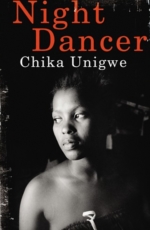

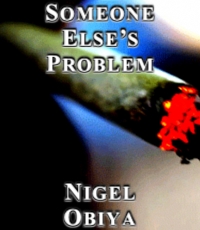


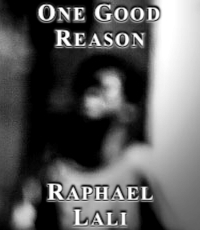




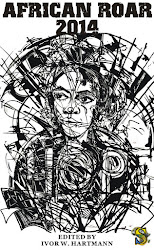
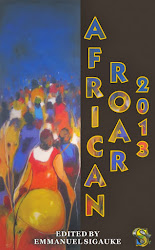
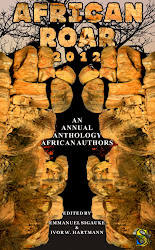

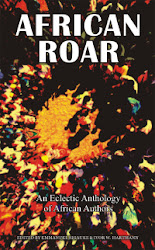

2 comments:
From the recently NAMA nominated Christopher Mlalazi, Dearest Sender of the Bulldozer's is a hard-hitting tale of survival in Zimbabwe.
Where by the whim of dictatorship in one fateful day a Zimbabwean family is torn from their city lives and thrust into a new and savage world. One of mass relocations, forced internments and daring escapes. Where the line between life and death grows tenuous, and survival rules the moment.
A moving story written in the form of a letter from a woman on the wrong side of life to a "comrade" who seems to hold the key to the woman's freedom.
The most moving aspect of the story is that the woman is writing the letter with only a hope that it will reach the recipient. We are almost brought to grief as we realise that her reliance is on the wind to deliver the letter.
The story is interlaced with humour that almost makes you guilty for laughing. However, as they say - if you don't laugh, you might end up crying.
Our hope and faith lies in the wind completing it's task and the comrade being brought to compassion.
Dear Sender of the Buldozers is a must read story!
Post a Comment